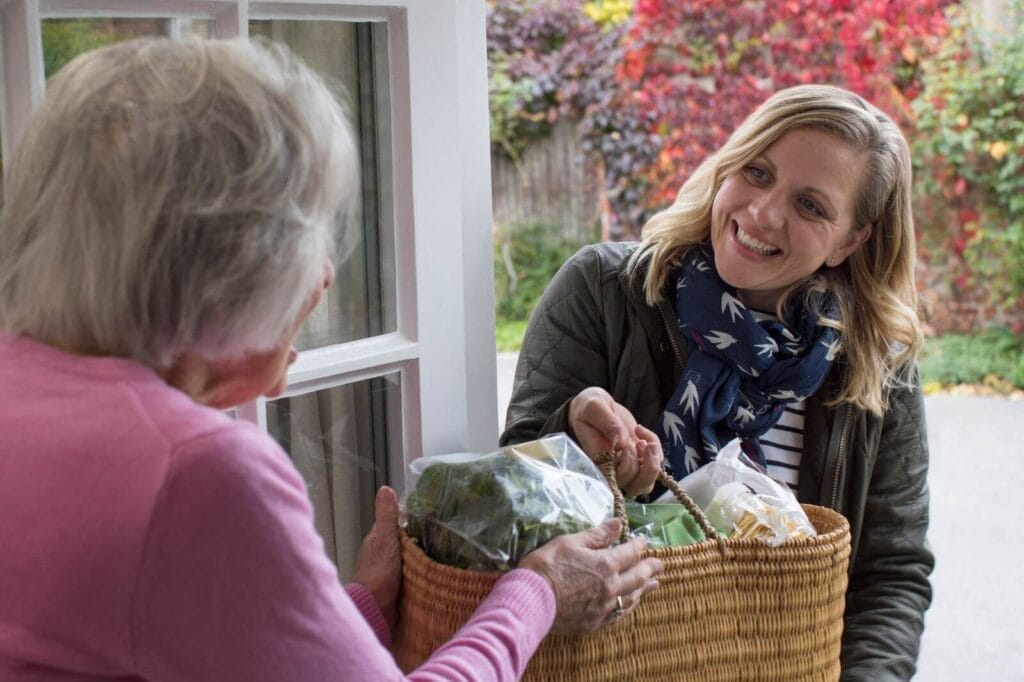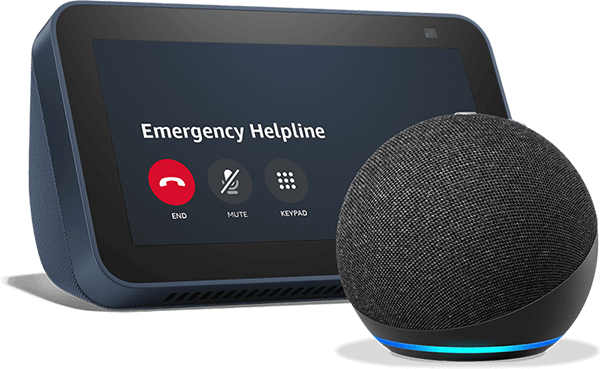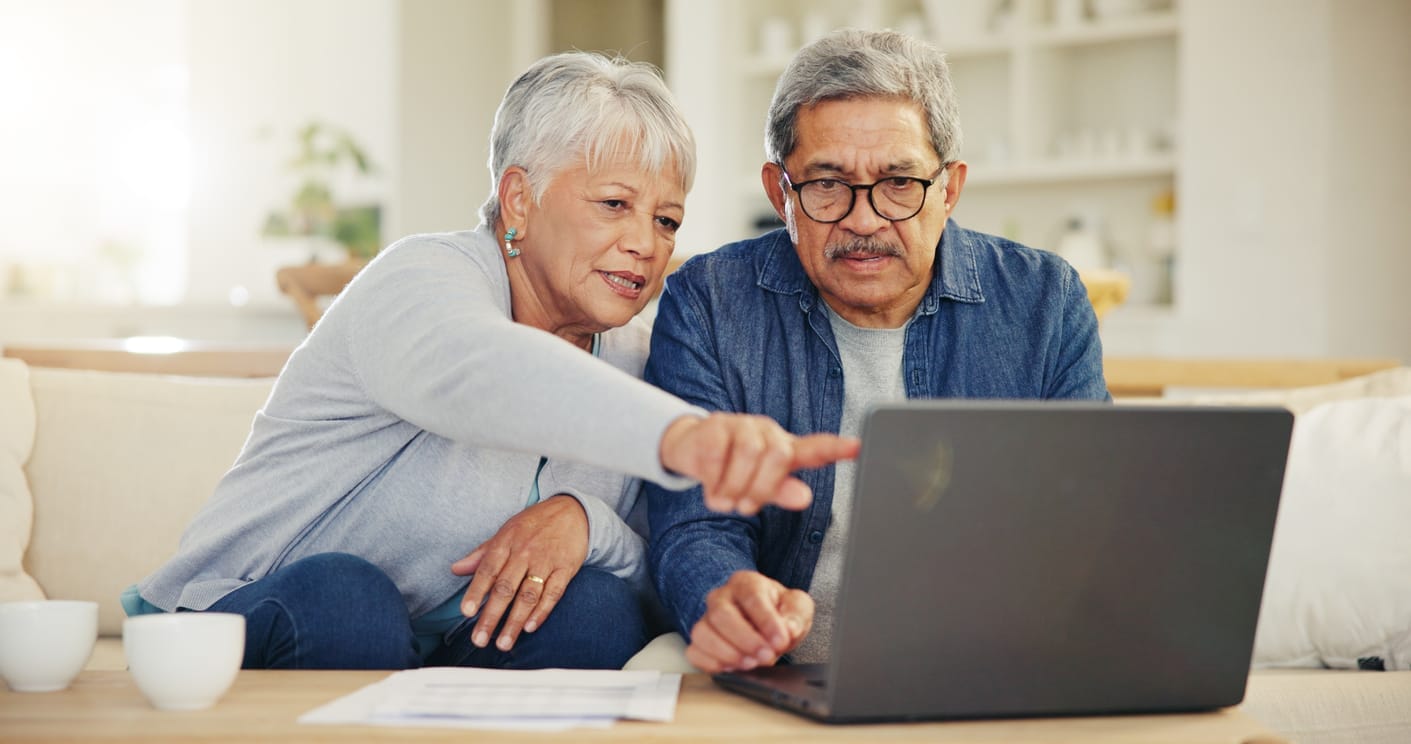
As your parent ages, they might need extra help completing tasks around the house and in their life. Depending on their mobility, independence, and confidence, they might need assistance with home and personal care tasks so that they stay healthy and comfortable living at home. You might feel overwhelmed if you find yourself taking on caregiver duties, and if you live far away from your aging loved one, you might feel confused about where to start.
In either case, we’ve compiled a list of the most common caregiver support that older adults living at home might need. Use this list to manage your time and to-do list and know what you might need to outsource through senior services agencies or home care support.
Helping with personal care tasks
Completing activities of daily living, or the tasks we all do to care for ourselves each day, can become challenging for older adults. Activities of daily living include dressing, bathing or showering, grooming (brushing hair, putting on makeup, shaving, brushing teeth, etc.), eating, mobility, and toileting (or managing incontinence). Your loved one might need varying levels of support to complete one or more of these tasks.
If you live nearby and can assist with these activities of daily living, keep in mind that you should always let your loved one do as much as possible on their own, even if it might take them longer than it would take you. Maintaining independence is crucial, so if they can button their own blouse, even slowly, let them. You can determine if your loved one needs simple verbal cueing throughout the tasks (“Mom, it’s time to brush your teeth”) or if they need more hands-on assistance by observing what they can do independently and with your encouragement. If you’re unsure how best to assist them, make an appointment with their physician to discuss it.
If you live far away, you won’t be able to provide hands-on support with activities of daily living. However, if your loved one needs only verbal cues, you can call them each morning to walk them through their hygiene routine. If they need more assistance, you can coordinate care with a home care agency or licensed caregiver.
Grocery shopping and other errands
Running to the grocery store might be normal for you, but this common and necessary errand can often go by the wayside as mobility decreases. Your loved one might need help with grocery shopping and other errands if they can no longer safely drive or complete the task independently.
If you’re helping out, you can add your loved one’s groceries to your weekly trip, dropping the bags off on your way home. If you’re coordinating care from far away, you can shop for them and have the groceries delivered via services like Instacart or Amazon.
Meal preparation and cooking
Planning and preparing three meals a day can be quite difficult for adults over 65. Add in fine motor challenges, mobility issues, or cognitive decline, and making healthy meals can seem nearly impossible. This is why many older adults turn to ultra-processed foods like frozen meals and fast food. While moderation is key, unfortunately, studies have shown that older adults eat too much of this ultra-processed food, which can contribute to cognitive decline and other physical health conditions.
If you are nearby, you can help your loved one by planning and preparing their meals. For example, if you make a pot of chili for your family, increase the recipe and make a few extra servings to take to your loved one. Be sure to bring meals in single servings, putting a few in the fridge and more in the freezer, along with quick instructions for rewarming them in the microwave or on the stove. You can also bring easy meal staples like yogurt and fruit for breakfast, salads or soups for lunches, and healthy, individually portioned snacks. Restock and clear out any expired leftovers once a week.
If you are coordinating care from far away, consider meal delivery subscriptions or using a site like Meal Train to rally and schedule neighbors and nearby family members to ensure your loved one has healthy meals at the ready.
Laundry and linen changes
Laundry can be difficult for older adults to keep up with, especially in the face of cognitive decline or mobility challenges. In addition to their clothing, they may struggle with staying on top of changing bed linens and towels. These tasks are crucial for personal hygiene, skin integrity, and self-esteem.
If you live nearby, schedule a weekly time to stop by your loved one’s home and take care of the laundry. You can throw in a load and then spend some quality time visiting with your loved one. If you live far away and are coordinating care from a distance, you might be able to find homemaker or laundry services that will pick up and drop off laundry a few times per month. Your loved one will just need to put the bags on the porch on pickup day, and you can call to remind them to do so.
Scheduling and attending physician appointments
Keeping up with preventive care as well as follow-up appointments can become difficult for seniors who no longer drive, have mobility issues, or are living with cognitive decline. They may need help with scheduling their appointments as well as getting to those appointments. Many seniors also need support during appointments.
If you are helping out and are nearby, you can schedule appointments on behalf of your loved one and keep them in your family calendar. You can drive your loved one to appointments and stay with them during the visit. If you are coordinating care from far away, you might need to schedule transportation via their local senior services agency or a service like Uber Health. You can stay in the loop with the details of the appointment as well as any follow-up instructions by checking your loved one’s patient portal for physician notes or by video calling into the appointment.
Maintaining social connections
Social health for older adults is an important part of their emotional wellness plan. However, it can become difficult to put friendships and social connections at the forefront when it requires scheduling coffee dates, attending social events, and figuring out how to get to them.
If you live nearby, work with your loved one to make special social dates on their calendar. You can help by inviting their friends, finding a place to meet up, and providing transportation for your loved one if they need it. You can still help with this planning process and coordinate transportation with local services if you live far away. Social connection ideas include inviting a few friends over for coffee, staying an hour after church service for fellowship, or attending a senior-friendly group exercise class at the local YMCA.
Caregiving looks different for every family, and you can be involved and supportive whether you live a few blocks or a few states away. The key is finding gaps in your loved one’s wellness plan and filling them without taking away independence. Knowing what types of caregiver duties to expect will ensure your loved one receives the care they need to stay happy, safe, and healthy.








